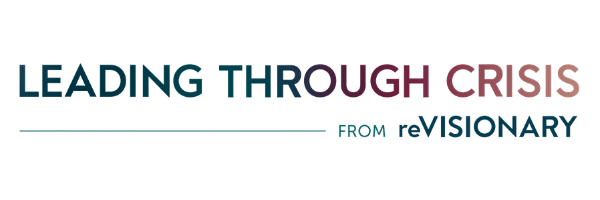Self-Aware Leadership with Kamini Wood
Listen to this episode on Apple Podcasts or Spotify
One of the topics that comes up quite often in the work I do is that of identity or, more specifically, what I believe to be true about myself that I have embraced as the truth of my identity. It’s a fascinating topic to explore with people as the vast majority have spent little to no time actively questioning or thinking about the things they see as their identity. In fact, whether they were things imposed upon them by society as a whole, by a family system, by the education system, by an experience, or something else–they are often just accepted as inherently true and left as is.
When we start to question aspects of our identity, it can really shake the foundation of who we believe we are–in both good ways and bad ways, but ways that are always interesting. Not everyone is going to want to do that work, ask those questions, be open to looking at the dark aspects of their identity and where they came from, and potentially rewriting some parts of their story. And, that’s completely understandable… there’s nothing wrong with that.
But, there are also people (in my experience, they are typically the people who are most open to growth, change, and discomfort) who are eager for that work and those questions, and want to get as specific, clear, and intentional about all aspects of their identity as they possibly can. They want to dive into the “shadow” parts of who they are, understand the inflection point of those things, decide if they still serve them or not, and move forward from there with intention.
It is because of those people that I learned one of the most important lessons about identity and self-knowledge: Sometimes, beliefs and words don’t have to change, but how I feel about those beliefs and words does. Rather than completely overwriting or disregarding the shadow or dark side of things, we can embrace it and shift our relationship to it.
I think this realization is one of the reasons I get so frustrated (and truth be told, angry) about spiritual bypassing and people who claim to be “doing the work” while never actually looking at any of the dirty, grimy, hard parts that come with being a human. We shouldn’t be avoiding the shadow stuff because, ultimately, we get to choose what we do with it and it will serve us no matter what.
For much of my life, I had a bit of a contentious relationship with my ability to “manage” other people and their emotions–specifically because it stemmed from growing up with a challenging parent who was very unpredictable if I wasn't managing their emotions. It often meant not acknowledging or dealing with my own needs, feelings, etc. which, unsurprisingly, led to some not-so-great scenarios at various points in my life.
However, at this stage in my life, I absolutely love that I have the ability to understand and manage other people’s emotions the way I do, as it serves me day in and day out in the work that I do. By changing my relationship with that concept, I have embraced it so I can use it to my benefit, as well as to the benefit of other people. I am very intentional about not letting other people’s needs override my own anymore while still being aware of what they might be feeling and helping them through it–so they also feel heard and like their needs matter as well.
Sometimes, shifting our perspective about a belief (our identity, or, you know… pretty much anything) is the most important work we can do on the journey to self-awareness.
*With the caveat that there are many of those steps to take on that journey. So, unfortunately, there’s never just one shift to make nor does the journey ever end. The joy of being a human!
My guest on this week’s Leading Through Crisis episode is certified life coach, creator, and CEO, Kamini Wood. We talk all about self-awareness in leadership and all of the things I just spoke about (above).
Listen in for a fantastic description of core values, core beliefs, and core needs (as well as examples of each), how we can shift old stories or limiting beliefs, and what self-compassion and self-care (the real kind) can do for us.
As Kamini reminds us, "We can’t give to [or lead] others when we don’t even have our own self taken care of."
—
Kamini Wood, a certified life coach, helps high-achievers heal their relationships with themselves. She helps people take courageous steps in identifying limiting beliefs, reasons for stagnation and overcoming self-doubt in order to live a full professional and personal life.
She is the creator of AuthenticMe® and CEO of Live Joy Your Way - a coaching company helping high performers and overachievers who have seen success through old-rooted, traditional metrics, reestablish their relational self-awareness. Trained in internal family systems and cognitive behavioral-based coaching, she can help her clients navigate past traumas and toxic relationships and truly live in self-acceptance, self-confidence, and self-leadership.
Kamini is a best-selling author; holding certifications in various modalities including life, wellness, high-performance coaching, teen life, conscious uncoupling, calling in the one, new money story, breath work, meditation and diversity, equity inclusion, and belonging. She is also trained in conscious parenting and coaching for children.
You can learn more about Kamini and grab her free 8-step guide to overcoming limiting beliefs at https://www.kaminiwood.com. You can also find her on LinkedIn (@KaminiWood), Instagram and Facebook (@itsauthenticme).
